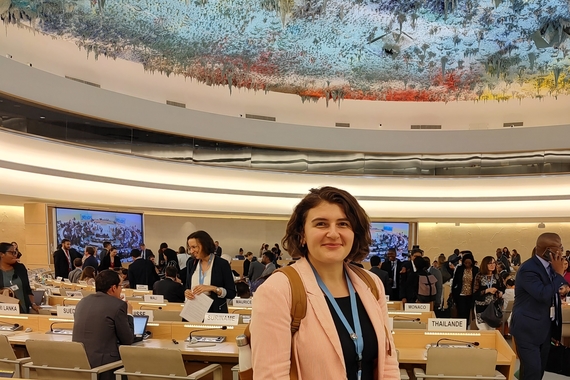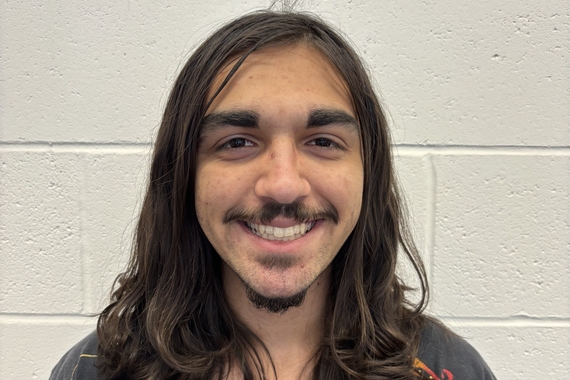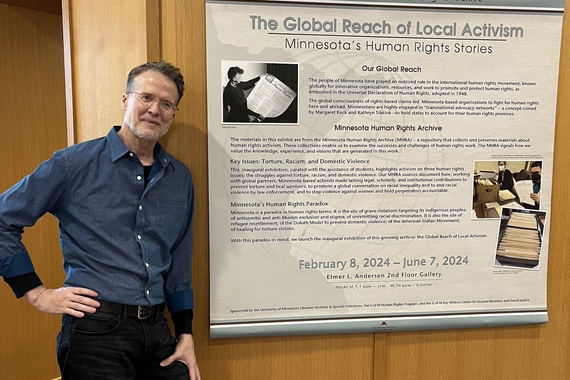Professor and HRI Grantee Lisa Hilbink Visits Sao Paulo University to Discuss Work on the Judiciary in Chile Days after Bolsonaro Election Win
Political Science Professor and Human Rights Initiative grantee Lisa Hilbink describes her recent trip to Sao Paulo University Law School in Sao Paulo, Brazil, as “one of the most rewarding” she has ever experienced. However, she almost did not go.
Professor Hilbink had been invited by the university to speak about her work Judges beyond Politics in Democracy and Dictatorship: Lessons From Chile which was first published in English in 2007, and later published in Spanish in 2014. The Sunday before Professor Hilbink was to leave for Brazil, the country elected controversial far right candidate Jair Bolsonaro as the country’s new president. In light of the president-elect’s inflammatory statements against members of Brazil’s LGBT community and public school teachers and his seeming disregard for human rights or checks and balances, Professor Hilbink wondered if going to Brazil to discuss her work was the appropriate move. She wondered, “are we sure I should go now that there are these other, clear reflection points?” However, when Professor Hilbink contacted Sao Paulo University Law School to express her concern, she was met with encouragement and assurances. According to Professor Hilbink, the faculty told her that they thought it was “more important than ever to have this conversation” on the judiciary’s role in government, democracy, and how this might inform the country’s newest presidential administration.
Less than a week after Bolsonaro’s election win, Professor Hilbink flew to Brazil. Upon her arrival she encountered “people who are afraid in this moment of uncertainty.” One such area of fear is related to the country’s judiciary system. Bolsonaro has expressed an interest in stacking the Supreme Court and rewrite the Constitution. According to Professor Hilbink, although these claims may seem outrageous and unlikely, her hosts in Brazil consider this a real possibility.
Unsurprisingly, the recent election and Bolsonaro’s outright support for authoritarian tactics and disregard for separation of powers or checks and balances were fresh in the minds of Professor Hilbink’s audience. Although she initially feared that her talk would not be useful or appropriate at this historical and political moment for Brazil, her fears proved to be unfounded. On the contrary, her talk opened up a space for the Brazilians in her audience to ask questions and seek perspective from Professor Hilbink’s work on the judiciary and human rights. For example, she closed one of her larger talks with the message that, despite Bolsonar’s targeting of the judiciary, it still remains the weakest branch of government. She responded to student and faculty desires to prepare for Bolsonaro’s January 1st inauguration by reminding them that “there needs to be others in other branches of government and civil society that are willing to come to the defense of and to support judges that take strong positions on rights.”
Professor Hilbink also reminded audiences of signs for hope, despite Bolsonaro’s fiery authoritarian-style rhetoric. She pointed to some of his early campaign appointments of moderate political actors who may help to persuade Bolsonaro away from unconstitutional or unethical policy decisions. Specifically, Professor Hilbink discussed the significance of Sergio Morro’s appointment to be the Minister of Justice in Bolsonaro’s administration. Morro, an extremely popular judge in Brazil, who has led an anti-corruption drive. According to Professor Hilbink, “it would be difficult to fire him because of how popular he is. Although Morro could quit, it couldn’t be like a Jeff Sessions situation.”
Many Brazilian’s fear Bolsonaro’s policies against public school teachers. He and others in his party have signalled support for proposed bills claiming to create “schools without parties.” In other words, the bill is an attempt to punish public school teachers who discuss anything left of center that Bolsonaro’s right wing party opposes. Bolsonaro has also voiced opposition to the country’s progressing LGBT rights work and increasing openess for sexual education classes in schools labeling these efforts as “gay kits” that seek to “turn children gay.” If these bills were passed and teachers were found to violate them, they could be subjected to up to six months in prison and dismissed from their jobs.
Outside of her formal talks, Professor Hilbink had the opportunity to discuss plans to organize a rights observatory through the law school with Sao Paulo University faculty. They hope to make it active on January 1st, the day of Bolsonaro’s inauguration. According to Hilbink, the organizers envision the observatory to be “a clearinghouse of information so people can report human rights violations, and be a way to keep some popular and international pressure on the government” to follow human rights standards. Professor Hilbink is especially excited that the University of Minnesota Human Rights Program will support this observatory work as it progresses, and plans to designate a landing page on the Human Rights Program website once the observatory is up and running.
University of Minnesota students are also able to learn from the rich experiences Professor Hilbink has brought back with her from Brazil. Professor Hilbink’s current class has engaged in lengthy and fruitful discussions regarding the Brazilian election, student human rights advocacy, and the role of the judiciary. Professor Hilbink hopes to continue sharing her experiences with students in upcoming courses that are especially suited for undergraduate students concentrating in human rights, or graduate students pursuing a Master of Human Rights or graduate minor in human rights.




